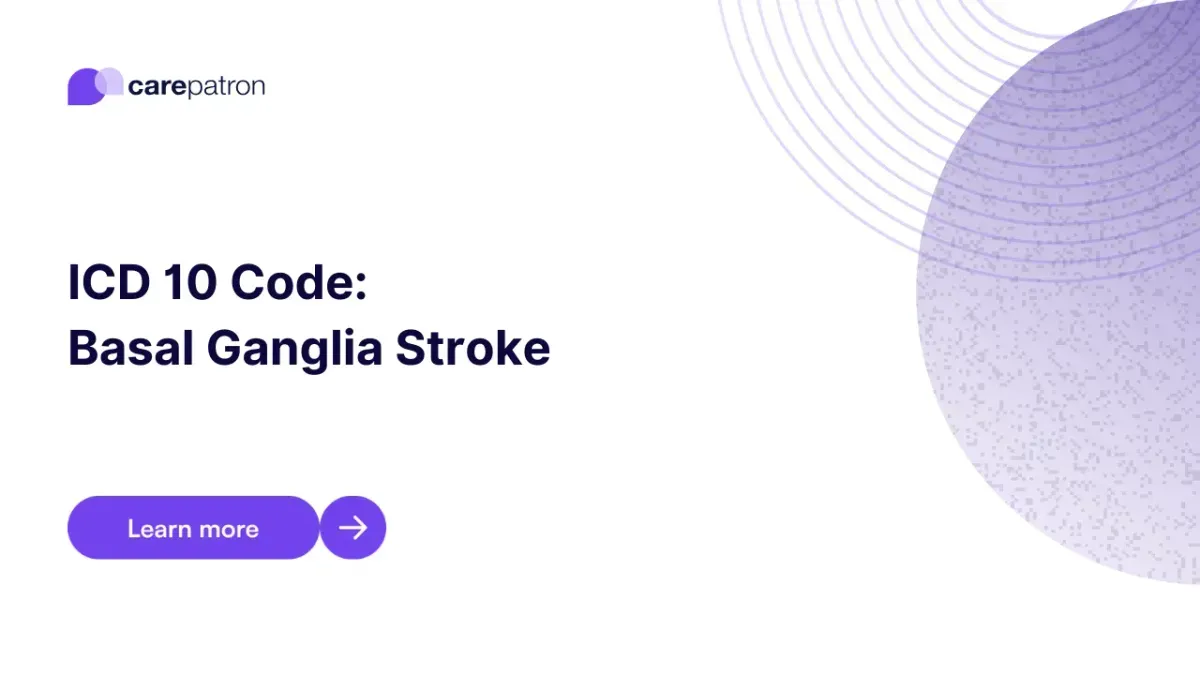
Basal Ganglia Stroke ICD-10-CM Codes
Read this short guide to learn about Basal Ganglia Stroke ICD codes you can use!
Use Code
Commonly asked questions
People who smoke are more likely to suffer from strokes. Having high blood pressure and/or diabetes also increases the risk.
They need to keep an eye on the following signs:
- If one side of their face becomes numb, unresponsive, or droops. They can try smiling to see.
- They need to check if they can raise their arms and observe if either arm drifts downward.
- They need to check if they can speak clearly and understand other people speaking.
If they notice these, they must see a doctor immediately.
After being treated by healthcare professionals, patients will likely have to undergo rehabilitation to regain muscle strength and relearn how to balance themselves. They might need to take speech therapy to help restore their ability to communicate through speech and some form of mental health therapy because they are prone to becoming depressed.
EHR and practice management software
Get started for free
*No credit card required
Free
$0/usd
Unlimited clients
Telehealth
1GB of storage
Client portal text
Automated billing and online payments
